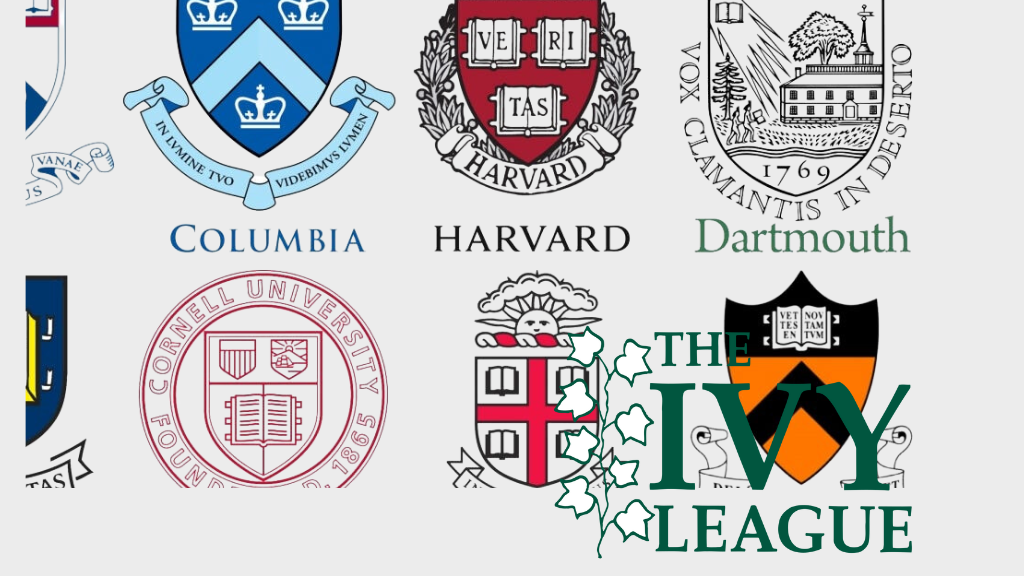Welcome to the world of Ivy League schools, where legends are made and dreams come true. Whether you’ve always dreamt of walking the hallowed halls of Harvard or strolling through Princeton’s picturesque campus, attending an Ivy League school is often seen as the pinnacle of academic success. But what is it like to be a student at these prestigious institutions? Brace yourself for an insider’s perspective as we uncover the truth behind the ultimate college experience at an Ivy League school, from breathtaking intellectual challenges to unforgettable social adventures that will shape your future forever. Get ready to indulge in tales that will both inspire and surprise you as we unravel the mysteries behind these coveted educational havens.
Introduction to the Ivy League and its history
The Ivy League is a prestigious group of eight universities in the Northeastern United States. The term “Ivy League” was first used in 1933 to describe the athletic conference formed by these institutions, which has since become synonymous with academic excellence and exclusivity.
The founding members of the Ivy League are Brown University, Columbia University, Cornell University, Dartmouth College, Harvard University, Princeton University, the University of Pennsylvania, and Yale University. These universities have a long history of providing top-quality education and producing some of the most successful leaders and professionals in various fields.
The roots of the Ivy League can be traced back to colonial times when many of these institutions were founded. Harvard was established in 1636 as the first university in North America. Yale followed soon after, in 1701. During this period, higher education was primarily reserved for wealthy white men from prominent families.
In 1847, a group of nine colleges came together to form an athletic league known as the Intercollegiate Association for Amateur Athletics (IAA). This included six out of the eight current Ivy League schools: Columbia, Cornell, Harvard, Princeton, Yale, and Penn. The purpose of this organization was to promote fair competition between member schools.
Over time, these institutions began competing not just on the playing field but also in academics. This led to collaborations and exchanges between faculty members and students from different schools, which further solidified their connection. However, it wasn’t until 1954 that all
Read this: Comprehensive Guide: UNIBEN Postgraduate School Fees for the 2024–2025 Academic Session.”
what are the 12 Ivy League schools

The Ivy League consists of eight schools:
1. Brown University
2. Columbia University
3. Cornell University
4. Dartmouth College
5. Harvard University
6. University of Pennsylvania
7. Princeton University
8. Yale University
Is Stanford Ivy League
Stanford University, despite being not officially part of the Ivy League, is considered one of the top institutions in the northeastern United States for academic excellence and prestige, despite being located in California.
What sets Ivy League schools apart from other universities?
Ivy League schools have long been considered the pinnacle of higher education in the United States. Consisting of eight prestigious universities, including Harvard, Yale, and Princeton, these institutions consistently rank at the top of national and global university rankings. But what truly sets Ivy League schools apart from other universities? In this section, we will delve into the key characteristics that make an Ivy League education unparalleled.
- Rich history and tradition:
One of the most significant factors that set Ivy League schools apart is their rich history and strong sense of tradition. Many of these institutions were founded over 200 years ago and have a long list of notable alumni who have gone on to become world leaders, academics, entrepreneurs, and cultural icons. The legacy and heritage associated with these universities create a unique atmosphere that inspires students to excel academically and contribute to their community. - Selective admissions process:
Ivy League schools are notoriously known for their highly selective admissions process. With thousands of applicants vying for only a few hundred spots each year, getting accepted into one of these institutions is no easy feat. This exclusivity creates a competitive environment where students are constantly pushed to work harder and achieve more. - Diverse student body:
Despite being known for their prestige, Ivy League schools pride themselves on creating diverse student bodies. Students come from different backgrounds, cultures, socio-economic statuses, and levels of academic achievement—all bringing a unique perspective to campus life. This diversity not only enriches the learning experience but also encourages
The Ivy League and College Admissions
The application process and what it takes to get in
The application process for Ivy League schools is notoriously competitive and complex, often leaving students feeling overwhelmed and uncertain about their chances of getting in. In this section, we will provide an in-depth overview of what it takes to get into an Ivy League school and the steps involved in the application process.
First and foremost, it’s important to understand that admission to an Ivy League school is not solely based on academic performance. While having a strong GPA and test scores is certainly important, these prestigious universities also consider a range of other factors, such as extracurricular activities, essays, letters of recommendation, and personal characteristics.
The first step in the application process is choosing which Ivy League schools you want to apply to. Each university has its own unique admissions criteria and preferences, so it’s essential to thoroughly research each one before making your decision. It’s also crucial to keep in mind that while the overall reputation of an Ivy League institution may be impressive, certain schools may have stronger programs or resources in your intended field of study.
Once you have narrowed down your choices, the next step is completing the Common Application or Coalition Application—online platforms used by most colleges for undergraduate admissions. These applications typically open up during the summer before senior year, giving students ample time to gather all necessary materials.
One major component of the application process is standardized tests, specifically the SAT or ACT exams. Most Ivy League schools require applicants to submit scores from one of these exams as part of their application. However, due to recent changes
People also ask
- Why are they called Ivy Lea gue?
- Why is Oxford, not Ivy League?
- Which Ivy League is the hardest to get into?
- Why is Stanford, not an Ivy?
- Is Oxford University better than Harvard?
- Is Yale still an Ivy?
- Which is better Harvard or Yale?
- What is the oldest university in the world?
- What’s the most prestigious university in the world?
- What is the youngest university in the world?
- What is the first university in Africa?
- Which is older Cambridge or Oxford?
- Which is the top 1 biggest university in the world?
- Which country has the best universities?
- Why is Harvard so famous?
- What are the disadvantages of Harvard?
- What field is Harvard best at?
- What GPA is required for Harvard?
- Can a 2.5 GPA go to Harvard?
- Does Harvard give scholarships?
- What is the lowest GPA accepted to Harvard?
- What is the UK Ivy League called?
- Who founded Harvard?
- What is the smallest Ivy League school?
- Which is the richest college in Oxford?
- Is Oxford cheaper than Harvard?
- Which Oxford College has no students?
- What is the cheapest Ivy League school?
- What is the #1 hardest school to get into?
- What is the most expensive college?
- How expensive is Oxford?
- Which is better Cambridge or Harvard?
- How much is the tuition fee in Oxford University?
- What is Yale famous for?
- Why did Rory choose Yale?
- How much is Harvard tuition?
- Is Stanford better than Harvard?
- How to get into Harvard?
- Why are Yale and Harvard rivals?
Academic expectations and workload at an Ivy League school
Attending an Ivy Lea gue school is the ultimate dream for many students, but it also comes with high academic expectations and a heavy workload. As some of the most prestigious universities in the world, these institutions have built a reputation for challenging their students to be the best of the best. In this section, we will discuss what exactly to expect when it comes to academics and workload at an Ivy League school.
Firstly, it’s important to note that every Ivy League school has its own unique academic structure and requirements. However, certain commonalities exist among them, such as rigorous coursework and highly qualified professors. At an Ivy Lea-gue school, you can expect your classes to be small in size, allowing for more personalized attention from your professors. This also means that class discussions are often encouraged, giving you the opportunity to engage in thought-provoking conversations with your peers and learn from different perspectives.
One of the defining features of an Ivy League education is its focus on critical thinking and analysis. The curriculum is designed not only to provide students with knowledge in their chosen field but also to help them develop strong analytical skills that can be applied throughout their lives. This emphasis on critical thinking may manifest in various ways, from long research papers and projects to class debates and presentations.
In terms of workload, attending an Ivy League school means being prepared for a significant amount of work outside of class hours. Students are expected to actively participate in extracurricular activities while maintaining top grades in their classes. Balancing both
Challenges faced by students at Ivy League schools
As understood, here’s a concise list:
1. Academic pressure
2. Competitive environment
3. Balancing academics and extracurriculars
4. Financial strain
5. Social adjustment
6. Mental health concerns
7. Work-life balance
8. Career and future pressure
9. Imposter syndrome
10. Expectations and perfectionism
Post-college outcomes for Ivy League graduates
1. High earning potential
2. Career advancement
3. Networking opportunities
4. Graduate school placement
5. Entrepreneurial ventures
6. Social impact and public service
7. Global opportunities
8. Continuous learning and development
Conclusion
The blog post discusses the history, application process, academic expectations, challenges faced by students, and post-college outcomes for graduates of Ivy League schools. It emphasizes the Ivy League experience’s transformative nature, acknowledging its opportunities and challenges. Attending an Ivy League institution offers unparalleled academic rigor, vast opportunities, and a robust network. The rewards and personal growth that come with it can be immensely fulfilling and impactful for students pursuing their dreams.
The post encourages readers to reflect on their aspirations and goals, acknowledging that attending an Ivy League school is not the only path to success. The experience is about personal development, lifelong connections, and meaningful contributions to the world.



